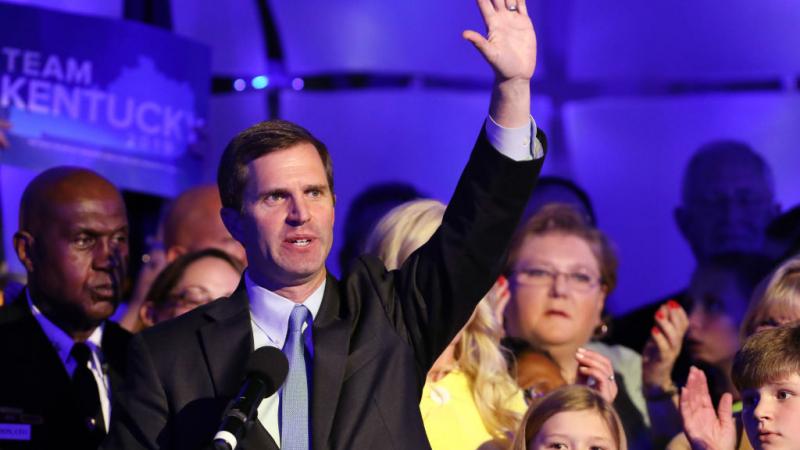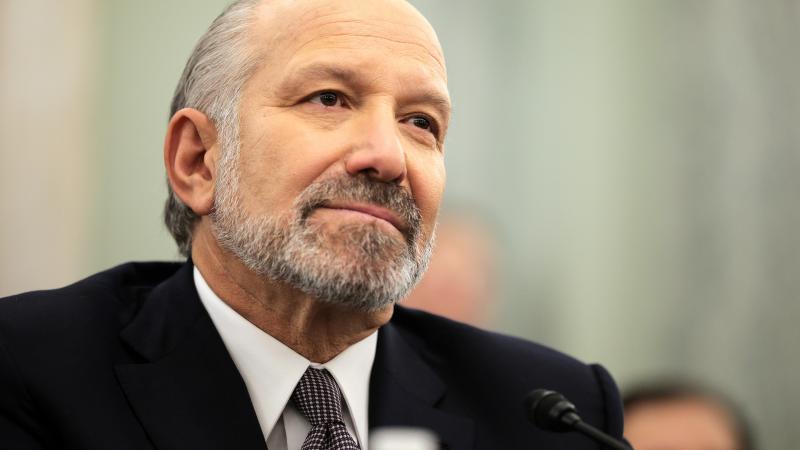Pennsylvania House approves election reform bill as veto threat looms
Gov. Tom Wolf is threatening to veto the measure once it reaches his desk.
An election reform bill cleared the Pennsylvania House of Representatives on Tuesday as Gov. Tom Wolf reaffirmed his plans to veto the measure once it reaches his desk.
“I want election reform, too,” he tweeted, confirming that he will reject the proposal in its current form. “But House Bill 1300 isn’t it.”
The lower chamber approved HB 1300 after Democrats’ said its enhanced I.D. requirements would suppress voters and “make it easier for Republicans to cheat.”
“As if the bloody attempted coup on Jan. 6 was not enough, now the losers of the 2020 election want to legislate voter suppression,” said State Government Committee Minority Chairwoman Margo Davidson, D-Upper Darby. "Let's get real. This bill is going to be vetoed, and it should be rightfully vetoed because it makes it harder for people to vote and easier to cheat.”
Rep. Seth Grove, R-York, sponsored HB 1300 earlier this month after he chaired 10 hearings in the State Government Committee that investigated election administration issues. He said he tried, multiple times, to engage the administration on the bill’s components, but no one ever returned his calls.
Jason Gottesman, a spokesman for the House Republican Caucus, reiterated the nonexistent negotiations, saying Tuesday that Wolf “was offered at least three good faith attempts to engage in substantive discussions on this bill to find compromise.”
“If this bill reaches his desk in its current form, it's because he would rather Tweet and hold press conferences than actually negotiate,” he said.
Chief among the governor’s list of grievances with the bill is a provision that requires identification before a voter casts a ballot in person. Current law only mandates I.D. for first time voters at a polling place.
Grove said that no voter can be turned away from the polls, and his bill offers workarounds for residents, including the option to sign an affidavit or use a provisional ballot in the absence of having proper identification.
HB 1300 also proposes monitored drop boxes, curbside voting, early in-person voting starting in 2025, pre-canvassing up to five days before an election, signature verification, uniform ballot curing rules, and tightened registration deadlines.
Critics say the “arbitrary” strings that come attached to some of the more bipartisan aspects of the proposal – such as ballot drop boxes and curbside voting – will increase costs for counties and put up more “barriers” to voting.
Lyndsay Kensinger, a Wolf spokesperson, told The Center Square last week that the “extremist” bill was “fueled by disproven conspiracy theories which will undermine confidence in our election system by doubling down on misinformation.”
“They don’t like the outcome of the November election and now they are retaliating against the voters, as their counterparts in other states have done, by pushing a proposal disguised as ‘election integrity,’” she said.
Republicans said public polling shows broad support for several of the components of their bill, including requiring identification to vote.
In an op-ed published by the Erie Times-News on Monday, Grove said county officials made it clear that the state’s current system is flawed and puts too many mandates on understaffed, underfunded local election offices.
That’s why, he said, moving registration deadlines up from 15 days before an election to 30 days is crucial, because it gives workers more time to process applications. The bill also creates a new line item in the annual budget that reimburses counties for half the cost of voting machines, poll books, voter registration cards and the administration of early and mail-in voting.
“What is unfortunate is the hyperbolic negative rhetoric and misrepresentation about what the bill would do has caused misinformation to spread,” he said.
Many of the bill’s provisions, he added, are designed to lessen the load on county offices – not make it harder to vote. He repeated that sentiment after more than four hours of debate on the House floor on Tuesday.
"There is a change in the ideology of voters," he said. "Overwhelmingly polling has consistently come back that supports election security as well as increased access, that is a fact. … This bill weaves all of that together."
The bill now moves to the Senate for consideration.
Grove said last week if a compromise can’t be reached by the end of the month – the same time frame during which the General Assembly will approve the state’s annual spending plan – the effort will move to the back burner as lawmakers address other priorities, such as congressional redistricting.
He said lawmakers also remain wary of implementing sweeping election code changes during the 2022 campaign cycle, which will feature open races for the U.S. Senate and the governor.
















